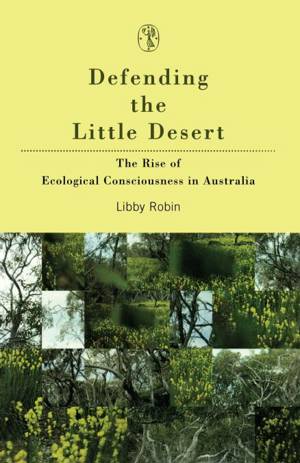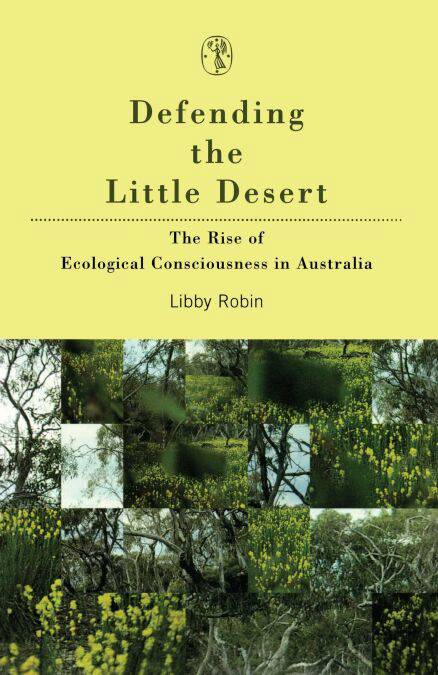
- Afhalen na 1 uur in een winkel met voorraad
- Gratis thuislevering in België vanaf € 30
- Ruim aanbod met 7 miljoen producten
- Afhalen na 1 uur in een winkel met voorraad
- Gratis thuislevering in België vanaf € 30
- Ruim aanbod met 7 miljoen producten
Zoeken
Defending The Little Desert E-BOOK
The Rise of Ecological Consciousness in Australia
Libby Robin
E-book | Engels
€ 12,92
+ 12 punten
Uitvoering
Omschrijving
In 1968 Sir William McDonald, Victoria's Minister of Lands, announced a rural settlement scheme for the Little Desert in Victoria's far north-west. The conservation campaign that ensued was one of unprecedented vehemence and sophistication. It cost McDonald his parliamentary seat and consigned the Little Desert Settlement Scheme to oblivion.
The Little Desert dispute was a watershed in Australian environmental politics. Suburban activists, scientists, amateur naturalists, economists and bureaucrats banded together to oppose McDonald's ill-conceived scheme. It marked the beginning of a new consciousness of nature and the concept of `biological diversity' was voiced in the halls of parliament for the first time.
In Defending the Little Desert, Libby Robin offers a sensitive account of the unlikely coalition of forces that assembled to save the Little Desert.
This beautifully written account of the campaign, perhaps the earliest expression of ecological consciousness in Australia, will be read by all Australians interested in conservation and the environment, in participatory political processes and in 'public science'.
The Little Desert dispute was a watershed in Australian environmental politics. Suburban activists, scientists, amateur naturalists, economists and bureaucrats banded together to oppose McDonald's ill-conceived scheme. It marked the beginning of a new consciousness of nature and the concept of `biological diversity' was voiced in the halls of parliament for the first time.
In Defending the Little Desert, Libby Robin offers a sensitive account of the unlikely coalition of forces that assembled to save the Little Desert.
This beautifully written account of the campaign, perhaps the earliest expression of ecological consciousness in Australia, will be read by all Australians interested in conservation and the environment, in participatory political processes and in 'public science'.
Specificaties
Betrokkenen
- Auteur(s):
- Uitgeverij:
Inhoud
- Aantal bladzijden:
- 224
- Taal:
- Engels
Eigenschappen
- Productcode (EAN):
- 9780522865790
- Verschijningsdatum:
- 7/09/2015
- Uitvoering:
- E-book
- Beveiligd met:
- Adobe DRM
- Formaat:
- ePub

Alleen bij Standaard Boekhandel
+ 12 punten op je klantenkaart van Standaard Boekhandel
Beoordelingen
We publiceren alleen reviews die voldoen aan de voorwaarden voor reviews. Bekijk onze voorwaarden voor reviews.







